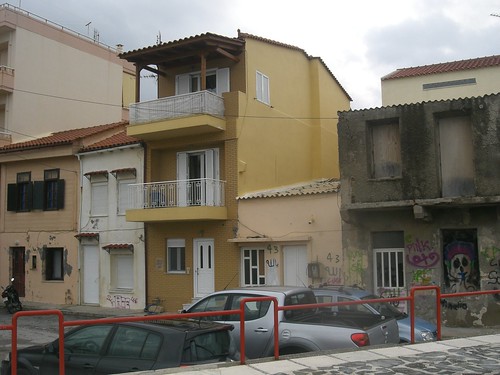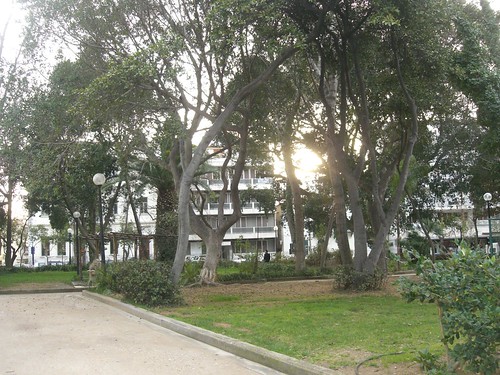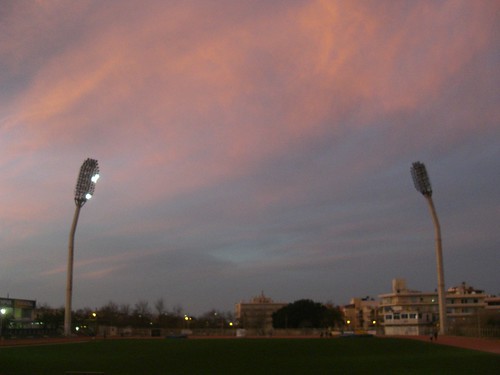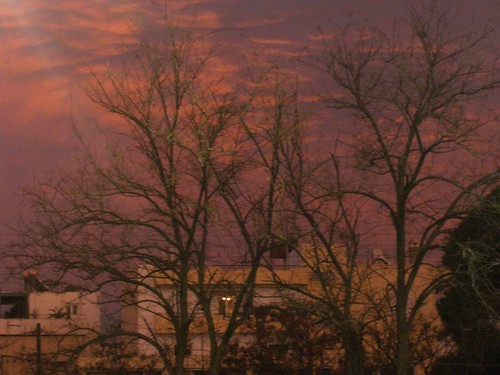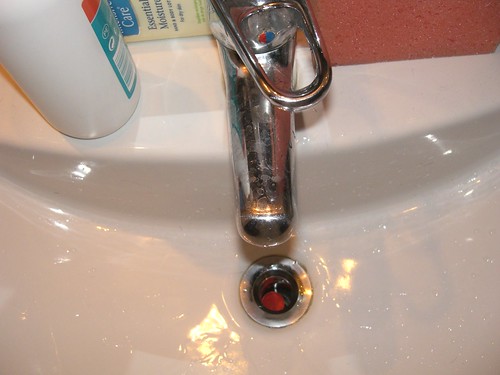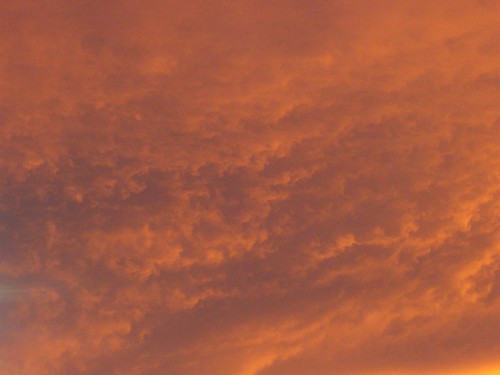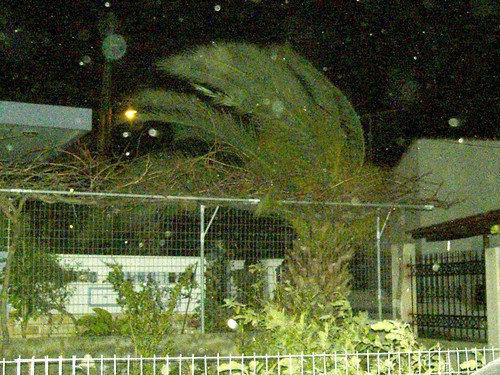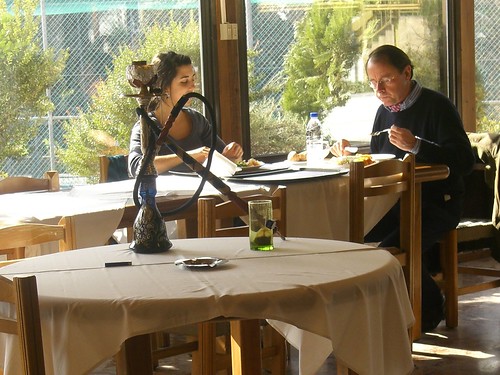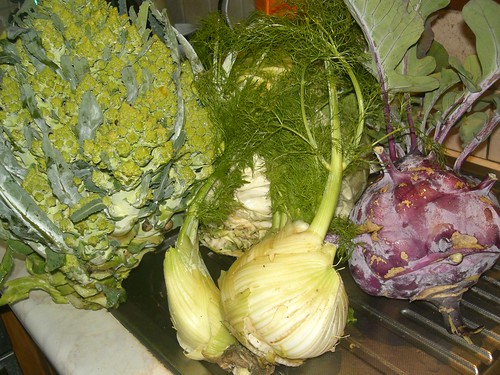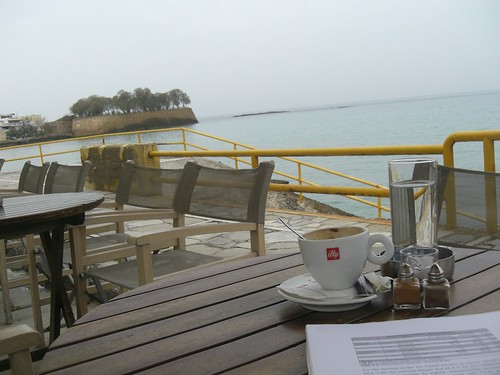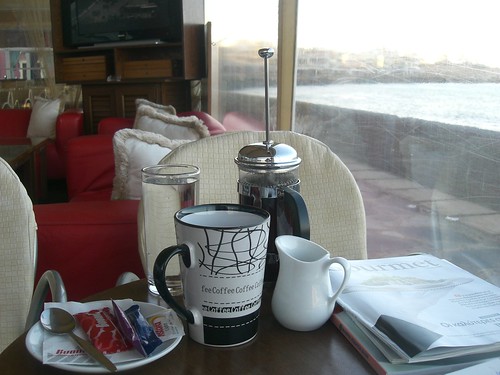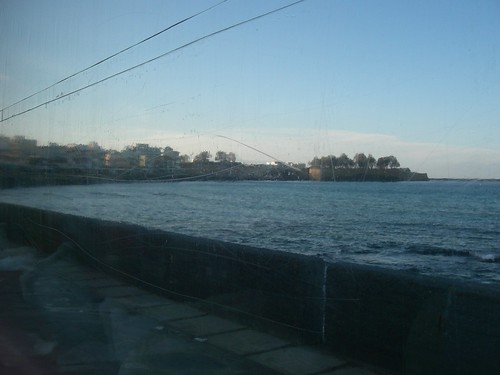When you see a sight like this, you are probably thinking:
1. Oh my God, it's a hovel! Poor people live here.
2. There is no place for them to dry their clothes except at street level.
3. They can't get the paint off their jeans - they wear filthy clothes.
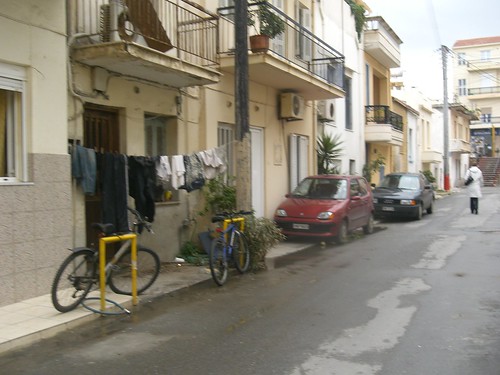
Now try understanding the photo without being prejudiced.
The above three points may be read more positively:
1. This old house costs very little money to rent (ie the occupants are saving a lot of money).
2. There may be no place to dry one's clothes except at street level, but at least these people can do their washing and have it dry somehow (ie they can keep themselves clean).
3. Their jeans are covered in paint, so that means they are painters (ie they are employed and making good money).
Last but not least, their use of bicycles must be applauded. It's cheaper and greener than a car.
And that's the state of economic migration in Hania - poverty on the outside, financial security within. Albanian immigrants in Greece save much more money per capita than Greeks do, ie they're working and saving, whereas the locals are working and spending.
'Nuff said.
